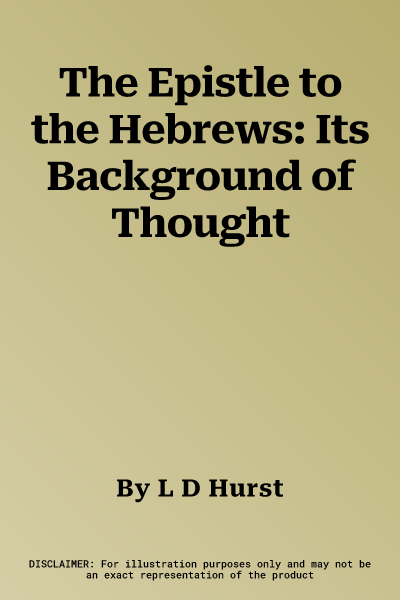L D Hurst
(Author)The Epistle to the Hebrews: Its Background of ThoughtHardcover, 30 November 1990

Temporarily out of stock
Free Delivery
Cash on Delivery
15 Days
Free Returns
Secure Checkout

Part of Series
Society for New Testament Studies Monograph
Part of Series
Snts
Print Length
223 pages
Language
English
Publisher
Cambridge University Press
Date Published
30 Nov 1990
ISBN-10
0521370973
ISBN-13
9780521370974
Description
Product Details
Author:
Book Format:
Hardcover
Date Published:
30 November 1990
Dimensions:
21.59 x
13.79 x
1.8 cm
Genre:
Christian
ISBN-10:
0521370973
ISBN-13:
9780521370974
Language:
English
Location:
Cambridge
Pages:
223
Publisher:
Weight:
381.02 gm